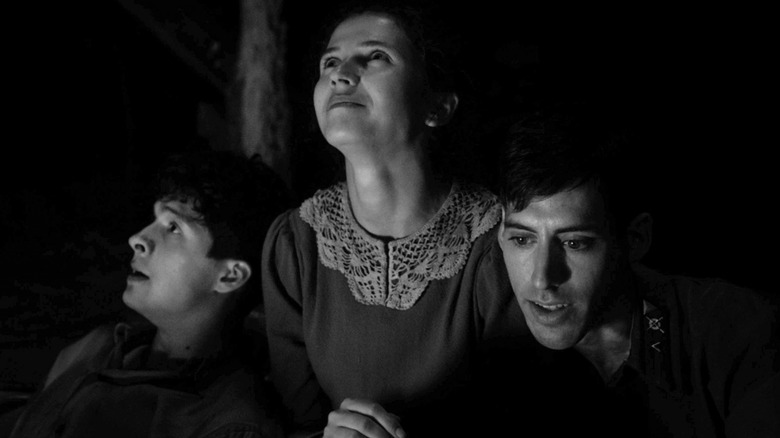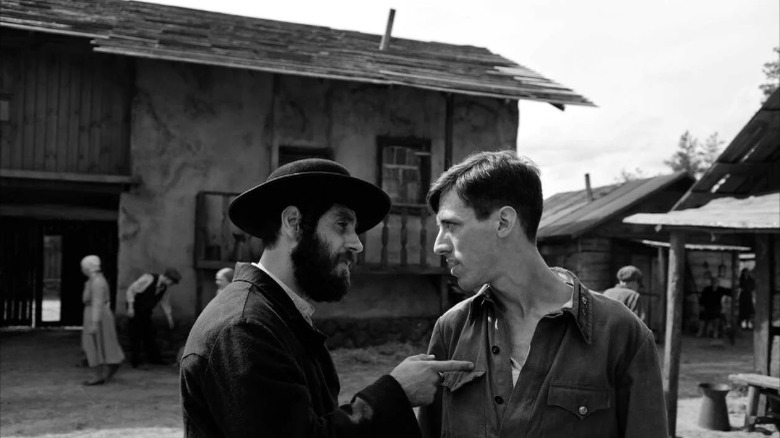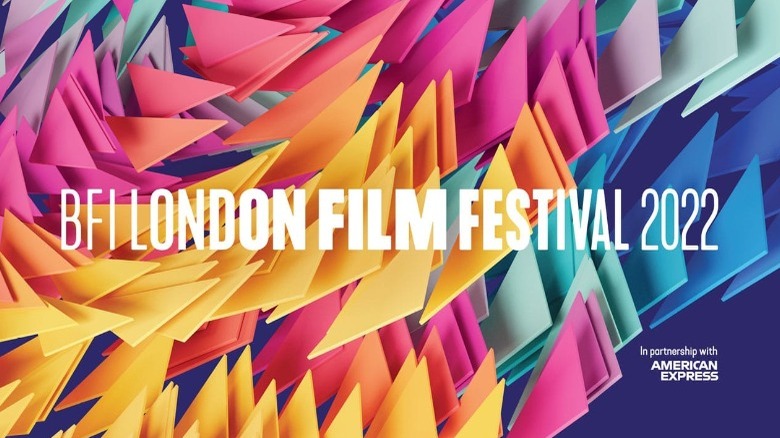SHTTL Review: A Towering, Single-Take Masterpiece Of The Lives We've Lost [London Film Festival]
Growing up Jewish is a complicated thing, rife with joy, culture, fear, and confusion. There are so many beautiful family and cultural traditions that come with religion, but it's clear from an early age that you're different from everyone else, particularly at Christmastime. It's hard not feeling like the other when you're surrounded by kids looking forward to what Santa will put under the tree, when you know full well he's not coming to your house.
Another thing you learn growing up as a Jew is that since the beginning, people have tried to wipe us out. That's a very strange thing to grow up with — knowing you're born into something that people have attempted to destroy time and time again. It's essential to learn about World War II, and specifically the Holocaust, a systematic, state-sponsored genocide of the Jewish people. Other minority groups were targeted too, but some six million Jewish lives were taken.
This might sound like growing up as a Jew is a miserable, othering experience, but that's not the case. Judaism is actually full of joy, and wherever I may personally stand with religion, the culture and community are eternal, offering a sense of belonging and happiness that I have always found rather profound. It's a community rooted in self-preservation and resistance, but also discussion. Healthy debate is always encouraged and happens often.
This is the all-important context for Ady Walter's "SHTTL." The film gets its title from "shtetl," a Yiddish word defining Eastern European villages with mostly Jewish populations. Set in Ukraine in 1941, "SHTTL" follows Mendele (Moshe Lobel) who left the shtetl to pursue filmmaking. It's his greatest passion in life — when someone asks him what a film studio is, he responds "Imagine the temple rebuilt, but better." Mendele has returned to reunite with the love of his life, in hopes that they can pursue a life together in the city of Kyiv.
At the beginning of the film, Walter is more specific with the timeline, making clear that "SHTTL" takes place on June 21, 1941. That's a mere 24 hours before Operation Barbarossa, a Nazi invasion that would destroy countless shtetls like the one we're about to see here. The message is clear: this is the last day of these people's lives.
A new approach to the Holocaust film
The Holocaust is an extremely challenging subject for a film, though it's been attempted countless times. These films typically focus on the atrocities themselves — "Son of Saul," "The Pianist," and "Schindler's List" are the most prominent examples. There is so much death in these films, so much suffering — which makes perfect sense given the impossibly difficult subject matter. "SHTTL," however, does something completely different. Instead of honing in on the horror, it celebrates the vibrancy and diversity of lives that never stood a chance to grow. This felt like a revelation to me — why focus on the atrocities when the real horror is how many beautiful, unique lives were taken from the world? "SHTTL" may be set in a fictional village, but rarely have Jewish lives felt as vibrant as they are here.
This is a keenly observed, deeply cathartic movie. It can be challenging to watch as the tragic fate of the shtetl is made clear from the first moment, but watching these lives in action is hugely engrossing. "SHTTL" often feels like a great therapeutic session. There's something so beautiful about seeing these lives play out so naturally, seemingly without a care in the world beyond their day-to-day lives. There are whispers of something to come — in one moment, gunfire is heard in the distance, brushed off as a military exercise — but all in all, this is a bustling, breathing portrait of a vibrant, passionate Jewish community.
Most of this film is just that — a portrait of Jewish lives. There's tension as Mendele makes an unexpected return to the shtetl, and Walter wonderfully captures that queasy feeling of returning to an insular community after leaving it, and the challenges such an action incurs. There's a Jewish expression that for every two Jews, there are three opinions. This comes from a culturally specific passion for civil debate and varying opinions. This specificity is beautifully outlined in "SHTTL." Every person Mendele speaks to has an entirely different thought on his return — some are thrilled to see him and hopeful for a permanent return, while others are disgusted he'd be willing to show his face in the home he abandoned. This is a complex community with a huge diversity of opinions, which Walter shows in ways that feel respectful and insightful rather than judgemental.
"SHTTL" is comprised almost entirely of these interactions; debates, discussions, and ruminations of life and faith, and how those two things, for this community, are inextricably linked. That may sound boring, but it's actually fascinating, in part because every character in this film feels like a real, living person, replete with fears, dreams, goals, and yes, opinions. The highlight of these passionate discussions comes from an enormously insightful and touching conversation between Mendele and the shtetl's Rebbe, who tells Mendele "Unity is the only thing that matters in the battle against evil." Herein lies the power of Walter's film — no matter what atrocities occur, you cannot ever eliminate a community united.
Insightful, beautiful, and completely unforgettable
Walter's camera feels like an extra member of this community, moving with Mendele as if walking beside him, keen to join in on the spirited debate and conversation. The camera leans in, backs up, and circles around, as if it's your own pair of eyes, trying to gauge people's reactions, ensuring every voice is listened to. It's exquisite and often subtle work — while "SHTTL" is shot in a single take, it never draws attention to itself and is never showy. You get the sense that the film is shot this way so as to not miss a single moment of these people's lives, and that's a very powerful feeling indeed.
Walter's film is largely in black-and-white but occasionally transitions to color. Typically, if a film uses both, black-and-white sequences represent the past while color is the present or future, but here, the effect is reversed. It's a clever technique that provides a stern reminder. Though black-and-white occupies the film's present, the characters are mere hours away from their demise, while the color sequences represent people with so much more life ahead of them. It's as if these lives are fading away into the darkness, and nothing can be done to stop that from happening.
I felt a lump in my throat every time the film turned black and white, reminding me once again that these beautiful lives were destined to be extinguished. The cinematography is consistently stunning, and the formal audaciousness of filming in one take — which is extremely successful — but there's so much sadness in each frame. I found myself constantly thinking of what could have been for these diverse lives, and knowing what became of them was often too much to bear. There's so much rich detail in "SHTTL" from the costuming to the set, which effectively recreates the type of village rarely seen in modern times. Even the commitment to doing the entire film in Yiddish rather than Hebrew speaks to its desire to make everything feel as authentic, and real, as possible.
After the film, once I composed myself (it took a while), I looked up the writer-director Ady Walter, excited to discover a rich filmography to dive into. I was absolutely astonished to discover that a film so ambitious, so impactful, and all done in one take is Walter's first credit. It's the kind of film most filmmakers dream their entire lives of making, and Walter has done it on his first attempt. I cannot wait to see what Walter does next, but even if no follow-up matches the incredible impact of "SHTTL," I won't be upset. Walter has made his masterpiece right out of the gate, and this monumental film feels vital not only as an absolutely essential Jewish film but as an exquisite testament to those beautiful lives that never came to be.
/Film Rating: 10 out of 10
"SHTTL"had its world premiere at the London Film Festival 2022. It does not yet have a US release date.


